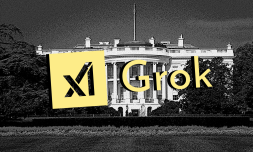The UK has just unveiled a raft of new measures to ensure the sustainable use of space in the years ahead. Already a leader of green initiatives on Earth, the nation is now looking to lead into the great beyond.
Speaking at the Space Sustainability Summit, UK science minister George Freeman has just outlined the government’s plan of action to protect the ecological integrity of space in the years ahead.
Having already established itself as a champion of green initiatives here on Earth, the UK is now hoping its new Space Sustainability Standard guidelines will have a similar effect in zero-G.
Taking on stage at the Science Museum for London’s fourth iteration of the conference, Freeman covered the central topics you’d expect: expanding space missions, debris clean-ups, addressing satellite traffic, and obviously attracting private investment.
While he didn’t go into too much detail about how each aim would be achieved, he outlined that the UK is playing a ‘leading role’ in ensuring that the UNOOSA guidelines (the UN’s framework for space sustainability) begins to come into effect globally.
It’s getting crowded up there
I’m at London’s world famous @sciencemuseum for the 4th Summit for Space Sustainability
The UK is leading the way in tackling the growing space junk crisis from redundant satellites and pieces of space debris.#SWFSummit22 pic.twitter.com/b0NA5md2V5
— Corinne Kitsell (@corinnekitsell) June 23, 2022
He asserted that the UK is targeting any remaining barriers preventing that from happening, which is frustratingly vague and yet also fairly encouraging in the same breath.
One of the meatier assurances he made is that the ‘Wild West’ space race would not continue to go unregulated, thanks to the upcoming Plan for Space Sustainability package.
This will actively draw on the UK’s massive venture financing power to influence the global space sector.























